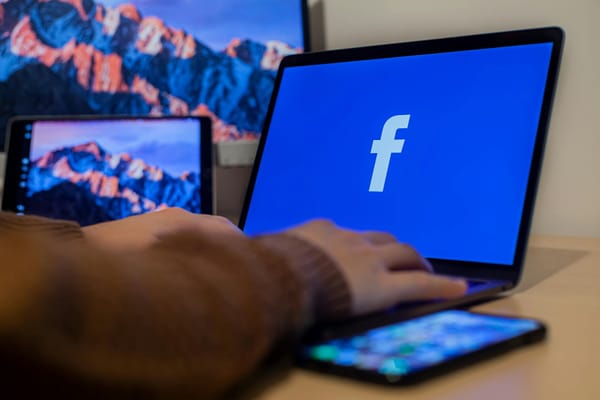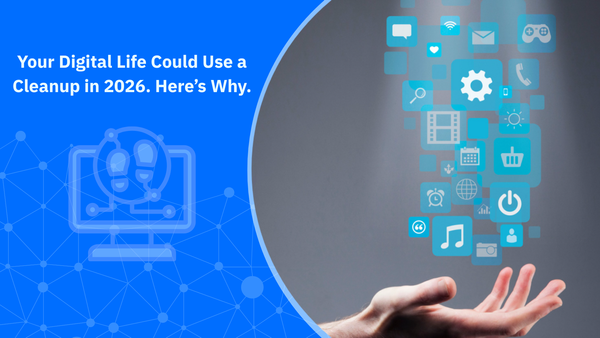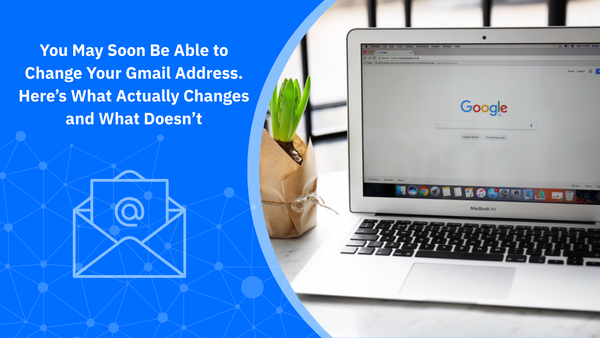Social Media Day 2025: Protect Your Digital Identity and Celebrate the Connections That Matter

Before the internet, social media, and smartphones, kids connecting with friends meant grabbing the house phone, or running into their front yard and shouting their name until they came outside. We’d beg our parents for “just five more minutes” of playtime, and every connection was felt in real time, face to face.
Now, in the age of social media, we send quick DMs, share voice notes, tag friends in memes, and connect instantly through video calls. Every interaction is digital: fast, efficient and, most importantly global.
While we may miss those simple, unfiltered moments, there’s no denying the extraordinary impact of social media on how we connect. It has bridged oceans, built communities, launched movements, and let us share our stories with the world.
On Social Media Day 2025, we celebrate this digital evolution and recognize the growing force that has reshaped the way we connect, communicate and even think. However, we should also reflect on the responsibility that comes with it. Unlike those fleeting playground conversations, the things we say, share, and post online live on – sometimes forever.
That’s why this celebration isn’t just about hashtags and highlight reels, it’s also about protecting the identity we’ve built online and practicing mindful digital habits that serve us today, and tomorrow.
Social Media Day 2025 is the perfect time to reflect not just on what social platforms give us, but on how we can better protect ourselves while using them.
The Digital Identity You Didn’t Know You Were Building
Every post, every ‘like,’ and every login contribute to what’s known as your digital identity, a mosaic of your online behavior, preferences, personal information, and interactions. While it may feel invisible or harmless, that identity has real-world value.
Hackers and scammers are increasingly targeting ordinary users, not just public figures. Whether it’s through a data breach on a social platform or a fake profile made in your name, your digital self can be weaponized against you. You might not even realize it until your friends start receiving suspicious messages from “you” or your phone number appears in a phishing database.
Worse still, with social media accounts often linked to email, payment apps, and phone numbers, a single point of compromise can snowball into financial fraud or identity theft.
How to Secure Your Social Media Accounts and Outsmart Scammers
Staying safe on social media starts with awareness, but it doesn’t end there. Strong passwords and 2FA authentication are essential, but modern scams go further than that. Cybercriminals use AI, brand impersonation, and social engineering that plays on urgency or emotion. That’s why it's important to stay ahead and scrutinize everything that sounds too good to be true and consider making your accounts private.
Take time learning how to recognize fake messages, shady links, and data-grabbing quizzes can help you and the people around you avoid becoming victims.
Here’s how Bitdefender can help you tackle multiple risks at once:
- Bitdefender Scamio, a free AI-powered scam detector, helps you analyze suspicious messages, offers, and social media links. Just paste the content into the Scamio chat and it will tell you if you're being targeted by a scam. It’s an easy and accessible way to protect yourself before clicking on anything sketchy.
- Bitdefender Link Checker adds an extra layer of defense for free. You can scan suspicious URLs you receive in a DM or check out an unknown website so you don’t walk into a trap.
- Bitdefender Digital Identity Protection continuously scans the Dark Web and other corners of the internet for your leaked data, from email addresses and phone numbers to usernames and personal identifiers. It alerts you whenever your data appears online and even helps you trace impersonator accounts pretending to be you on social media.
Share Safely, Celebrate Fully
Social media helps us remember birthdays, reconnect with classmates, discover new hobbies, and stay informed. But, just like we wear seatbelts in cars and lock our doors at night, we need to take precautions online too.
On this Social Media Day, let’s continue to celebrate what these platforms have brought into our lives, but let’s do it smartly. Take control of your online identity, protect yourself against scams, and encourage others to do the same.
Because the best way to enjoy social media is knowing you’re safe while using it.
Start protecting your digital identity with Bitdefender.
tags
Author
Alina is a history buff passionate about cybersecurity and anything sci-fi, advocating Bitdefender technologies and solutions. She spends most of her time between her two feline friends and traveling.
View all postsRight now Top posts
How Do You Manage Your Passwords? We Ask Netizens
December 18, 2025
Cybercriminals Use Fake Leonardo DiCaprio Film Torrent to Spread Agent Tesla Malware
December 11, 2025
FOLLOW US ON SOCIAL MEDIA
You might also like
Bookmarks







